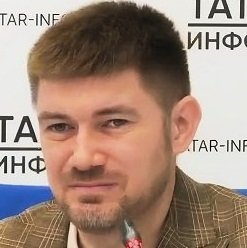The Institute of Language, Literature and Art joins Telegram’s amateur translation
Before that, it was done almost single-handedly by a 38-year-old engineer from Kazan
The Institute of Language, Literature and Art named after Galimdzhan Ibragimov has joined the translation of the Telegram messenger, which was previously done almost single-handedly by engineer Ilgiz Zigangirov. The basis is already there, the institute says, now it will be improved by specialists. Read more details in a report of Realnoe Vremya.
To avoid jumping from boat to boat
As an open-source messenger, Telegram currently has three versions of the interface translation into Tatar. The largest one was done almost single-handedly by Ilgiz Zigangirov.
He is an engineer, 38, and works in one of the manufacturing companies in Kazan that deals with medical instruments. Zigangirov emphasised that he is not a professional translator or programmer. He began translating the messenger interface into Tatar in August 2023 working on the Telegram translation platform, in which words are combined into blocks, and there are even pictures to help the translator.
Zigangirov pointed out that Telegram currently has 185 channels in the Tatar language, the most popular of which have thousands of users.

Communities and artificial intelligence
Two user communities helped the engineer translate words: one is bigger, the other is smaller. For targeted work, a dictionary, the so-called “translation memory,” was compiled from about 80 words and expressions.
In his work, Zigangirov also used such sites as the Electronic Fund of Dictionaries of the Republic of Tatarstan, Ruviki, Tatsoft.
Sometimes words seemed outdated or too long, then Zigangirov asked users for help.
“I noted an interesting phenomenon: users who do not live in Russia suggested options from other languages, and they sounded more native than from Russian. But this is a controversial issue,” the enthusiast noted.
This July, a Bashkir translator contacted Zigangirov, he suggested speeding up the work with the help of artificial intelligence.
“The result was not bad, but it needs to be checked, corrected, because sometimes it seems like a child translated it,” the author of the project noted.

“It’s kind of weird, like walking on the moon”
Now the entire Institute of Language, Literature and Art is joining in on his work

From a scientific point of view, it is necessary to improve the translation of Zigangirov and his associates, Khalikov noted, since the basic translation of the messenger has already been done.
“The more we expand the scope of the Tatar language, the more opportunities there will be for its growth,” Khalikov summed up.
Note that you can download the Tatar translation in this version via the link. Journalists noted that sometimes it is unusual: “It's kind of strange, like walking on the moon.” Khalikov responded by saying that necessity should be turned into a habit.
“Translation is like a renovation: you can start it, but you can't finish it,” Zigangirov joked at the end.